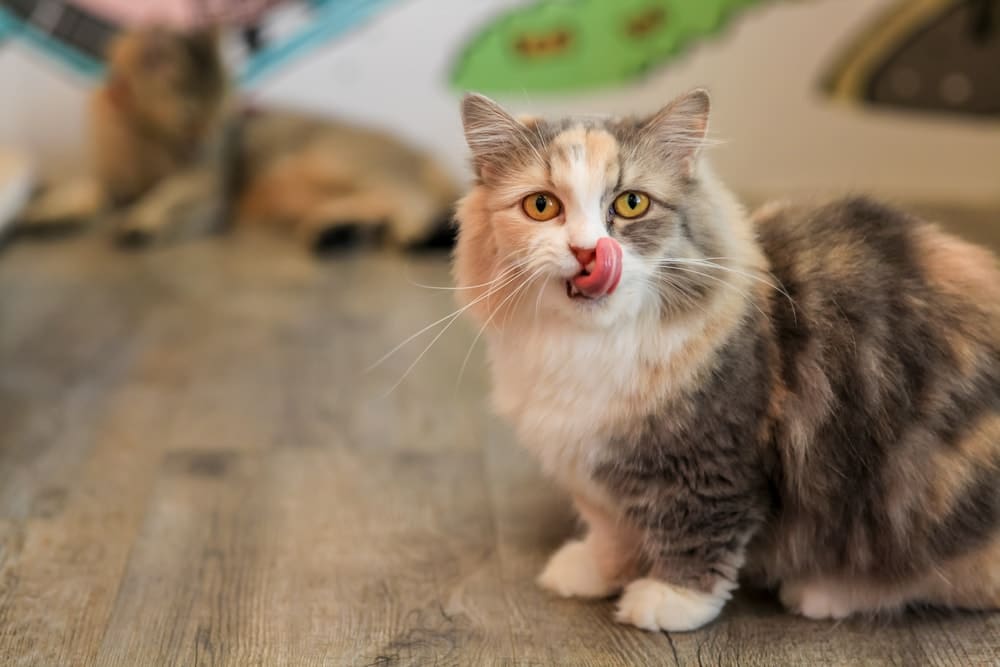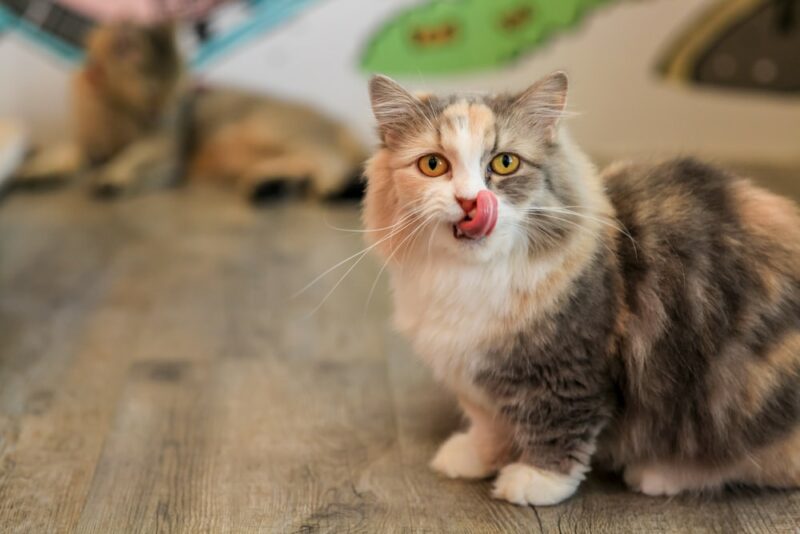Cats can often display behavior that is utterly baffling to their human companions. A common cat behavior that people tend to find odd is eating vomit. Many people have seen their cats chowing down on a pile of food that they’ve just vomited up, and it makes one’s skin crawl. So, why do they do it?
Unfortunately, there’s no clear consensus on why cats eat their vomit. The most likely reason is that the vomit smells like their food. If you want to learn more about this behavior, keep reading.
The True Reason Why Your Cat Eats Their Vomit
The long answer as to why your cat is eating their vomit comes mostly from what is causing them to vomit in the first place and the contents of the vomit. For example, cats sometimes vomit when they overeat, eat too fast, or exercise too much after eating. Other times, they vomit from illness.
When cats vomit most of the time, their last meal comes up too. So, the vomit is just a warmer version of their food, something very appealing to the cat palate.
When it comes to eating vomit, cats will usually only eat vomit densely concentrated with food; most cats won’t lick up pure stomach acid from the floor. So, if your cat is eating their vomit, it probably contains food that they don’t want to waste. How eco-sensitive of them!
The stuff your cat is vomiting up probably looks, smells, and tastes pretty similar to their regular food. As unpleasant as it sounds, they’re not wrong about that, especially if they vomit shortly after eating from overeating or overexercising.
Additionally, cats love warm and smelly food, and as gross as it sounds, their own half-digested food fits the bill. However, if your cat is indiscriminately eating vomit, you should contact your vet.
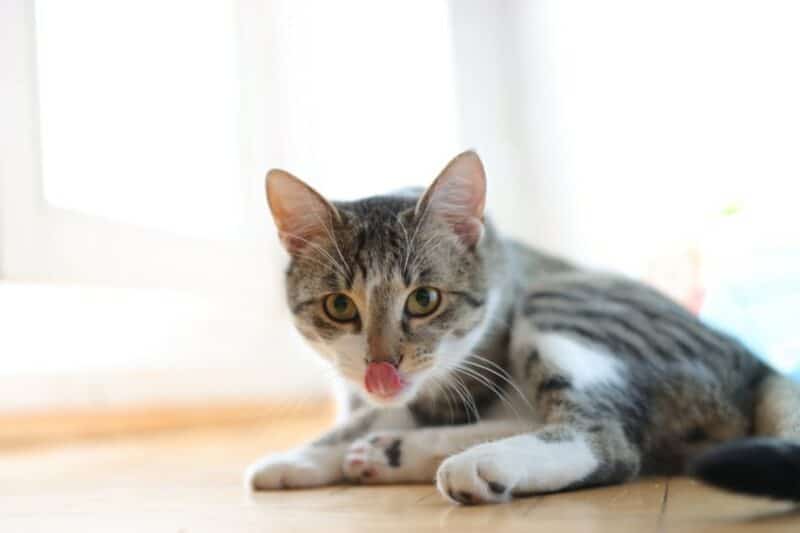
Is It Okay for Cats to Eat Their Own Vomit?
As gross as it may sound, there’s nothing actually wrong with your cat eating their vomit as long as the vomit they’re eating contains food. While we can argue back and forth about whether it’s healthy for cats to consume the bacteria from the floor, there’s no doubt that cats eat things far less hygienic than floor vomit in their daily lives.
If you catch your cat eating their vomit, you should still intervene and consider feeding them a small amount of their regular food to help tide them over until their next meal. However, the behavior is not in and of itself a cause for concern.
Why your cat is vomiting is more concerning than whether they’re eating the vomit afterward. Observe your cat’s behavior surrounding their vomiting to determine if they need to be assessed by a veterinarian.
Are they vomiting more than once a day? Is the vomit just food, or is it blood and other things? Is there a hairball in the vomit? Is your cat showing other signs of illness? A “yes” answer to any of these indicates a need to get your cat to the vet!
Why Is My Cat Vomiting?
There are several causes of vomiting in cats. Each is of varying severity. If your cat is frequently vomiting, you’ll want to have them seen by a veterinarian as soon as possible. Frequent vomiting is neither healthy nor comfortable for the cat, and the situation will need to be addressed for your cat’s safety.
Your cat shouldn’t be vomiting often. Even vomiting several times a month is too much for a cat. You’ll want to keep track of how frequently your cat vomits if you plan a vet visit. That way, you can give your veterinarian plenty of information about your cat’s condition.
Hairballs
Hairballs are common causes of vomiting in cats. When cats groom themselves, they ingest a large amount of their fur. Usually, this fur passes through the digestive system and into the feces.
However, sometimes, the amount of fur in the stomach can get to the point that it can’t pass through the intestines correctly. In this case, your cat will throw up the hair onto the floor.
Hairballs are not necessarily a cause for concern on their own. Unless your cat has frequent hairballs—two or more per month—your cat is probably just a typical cat that likes to preen themselves.
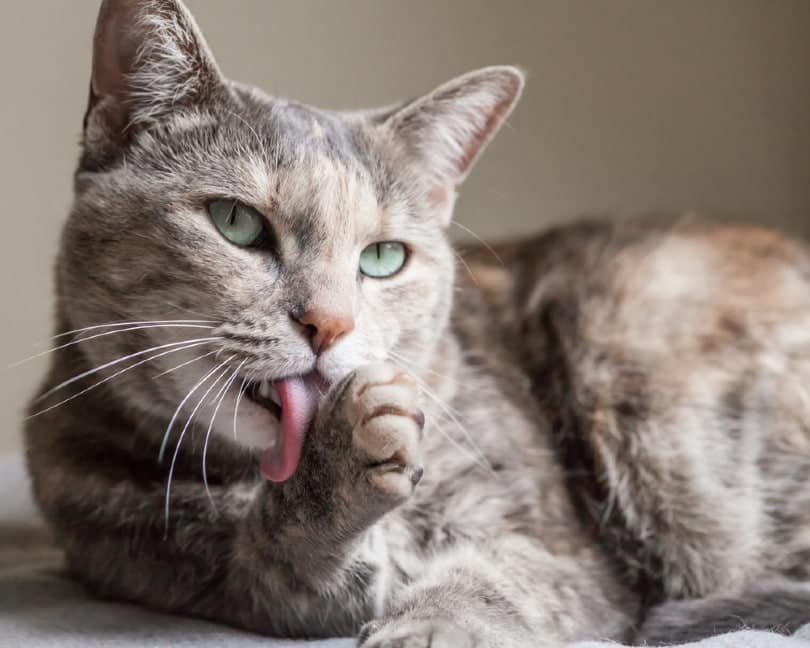
Frequent hairballs can cause your cat’s body systems to be disrupted, though. So, if your cat has a lot of hairballs, you’ll want to do what you can to help them pass the hairballs harmlessly. At-home treatments like Laxatone gels can help your cat pass hairballs into the bowels before the amount of hair built up reaches a critical mass.
If not appropriately treated, cats that experience frequent hairballs can have their intestines blocked by the masses of hair they’re ingesting. In severe cases, these obstructions can be fatal.
Eating Too Quickly or Too Much
When your cat eats, they may vomit if they overload their stomach with food too quickly. Additionally, overeating can cause vomiting when the body sends signals of the stomach expanding too quickly. These signals cause the brain to send alerts to the body to induce regurgitation.
Much of the “vomiting” we see cats eating isn’t truly vomit. Instead, they’re eating regurgitated food. The difference is tiny but notable.
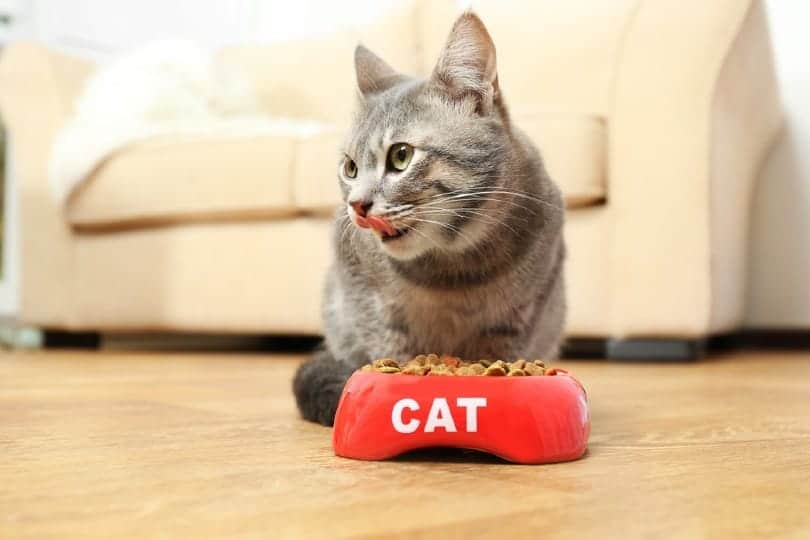
Health Issues That Can Cause Vomiting
There are plenty of health conditions that can cause vomiting. So, if you suspect your cat is suffering from an illness that’s causing them to vomit frequently, a trip to the vet to clear up any issues should be first on your to-do list.
- Pancreatitis
- Depression
- Stress
- Parasitic infections
- Anxiety
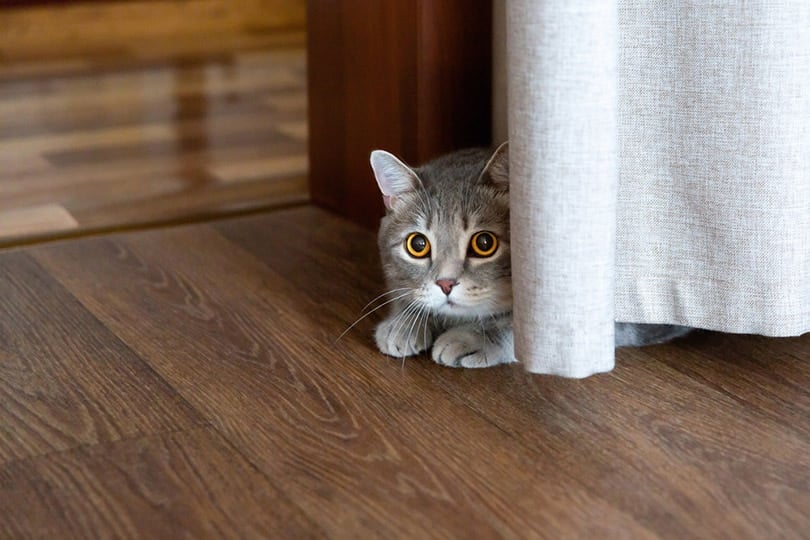
Final Thoughts
It can be a bit unpleasant seeing your cat eat their vomit, but rest assured that this behavior isn’t unusual or abnormal for cats. Of course, you can still intervene and give your cat a snack if they’re vomiting up their meals often and check with your vet if you’re concerned. But eating their regurgitations isn’t a problem in and of itself.
See also:
Featured Image Credit: Twinsterphoto, Shutterstock

